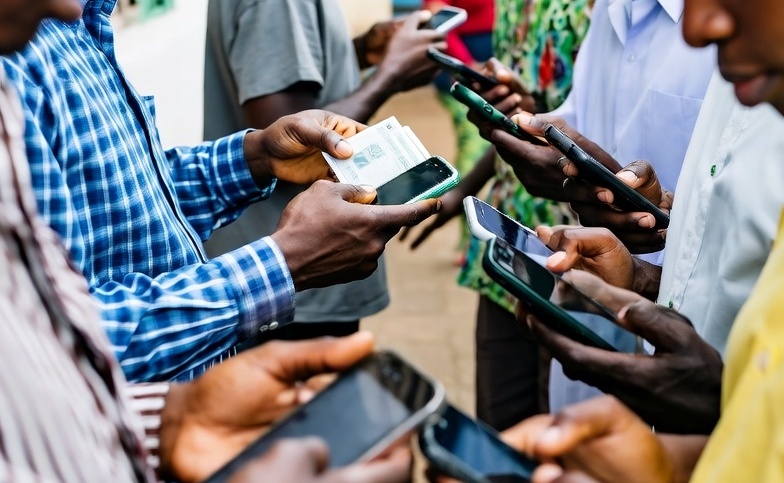Nasir El-Rufai
A few weeks ago, I addressed a gathering of clergy, professionals, and everyday citizens at an interactive session in Owerri. I was invited to speak not as a politician, but as a fellow Nigerian, to reflect candidly on where we are, and more importantly, where we are going. In that room, I was reminded that while the history that has shaped a nation’s past cannot be undone, it is collective vision, clarity and courage that determine its future.
It goes without saying that Nigeria is at a difficult crossroads, but the evidence compels us to say it plainly. We are now the world’s most populous Black nation, projected to exceed 400 million citizens by 2050, yet we remain structurally fragile. Over 130 million Nigerians are classified as multidimensionally poor. Many are trapped in a cycle of deprivation, with limited access to education, healthcare, or clean water. Nearly 40 per cent of our youth are unemployed or underemployed, living in cities where opportunity is outpaced by frustration. Public debt has surged; inflation remains high and poverty continues to chip away at the dignity of millions of households.
These are not abstract statistics; they are signposts of a nation that is drifting from potential to paralysis. And though we have held elections every four years since 1999, a remarkable democratic feat on paper, fewer and fewer Nigerians are choosing to participate. In 2003, over 60 per cent of registered voters cast their ballots. In 2023, it was barely 27 per cent. That is not just apathy, that is estrangement. Many of our compatriots are, quite literally, demonstrating a lack of faith in our electoral system, becoming mere observers rather than rightful participants in our democratic journey.
Optimism in our country’s prospects is what propels every patriot to keep striving. In times like these, however, optimism becomes inadequate without a clear anchor. We need an openness of mind for candid and difficult conversations, to agree on a vision and summon a collective willingness to do be pragmatic, consistent and focused on implementing the policies and programmes that can translate that vision into prosperity, progress and pro-poordevelopment.
These, in my view, constitute the irreducible minimum of civic expectations that our politicians, public servants, business leaders, civil society and citizens must subscribe to, as the future direction of our nation. Some general agreement around this clear anchor of expectations – an elite consensus – is what Nigeria needs now more than ever.
We must craft a new elite consensus that transcends the arithmetic of power and confronts the fundamentals of how we govern, how we elect, and how we grow. Elite consensus is not a new idea. However, it still remains Nigeria’s most elusive and ignored governance framework. In every functioning democracy, the real stability lies not in constitutions alone, vital as these are, but in unwritten agreements among the elite about the limits of power, the sanctity of citizenship, and the rules of political competition. In Nigeria, we have the elite, but we clearlyalways lack consensus. We have competition, but we seldom show restraint. As politicians and leaders, we argue over access to office, but rarely over the shape of the country that we are trying to build, when we occupy the office. That vacuum has left us with a political culture that sees public office not as a vehicle for solving problems and developing a country, but as a spoils system, a zero-sum arena where personal interest and survival matter more than public service and societal substance.
To reverse this, we must begin where all democracies begin, with elections. Since 1999, we have held six presidential elections. Every one of them, except in 2015, ended in litigation. The 2015 concession by President Goodluck Jonathan was not just honourable, it was historic. It was also the exception. More troubling still, as mentioned earlier, voter turnout has plummeted with each cycle. The irony is unmistakable, even as our population has soared, our democratic engagement has shrunken. We are becoming a democracy in which a super-majority of citizens do not vote, and where even more citizens believe that their votes may not count.
This is not sustainable. If citizens believe the electoral process is neither credible nor consequential, democracy begins to hollow from within. This is why, we must restore trust at the very foundation of our system, the ballot box. That is also why I have consistently advocated for an immediate transition to electronic voting and real-time transmission of results ahead of the 2027 general election. This is not a radical idea, it is a rational one, tested and proven in Kaduna State during the 2018 and 2021 local government elections. The technology exists. The legal framework can easily be created. All that remains is the political will.
Imagine a system where each voter is verified electronically, casts his or her vote digitally, and sees the result transmitted instantly and transparently onconclusion of the election without human interference. Imagine polling units where rigging is rendered obsolete by design, where party agents, electoral and securityofficialswalk away with printed results within minutes of the polls closing, and where public confidence begins to rebuild itself, one fair vote at a time. In Kaduna, in2018 and 2021, such a system saw the ruling party lose some local government councils and accept the results.
Yet, elections, however well conducted, are only the starting line. What follows must be an equally serious approach to governance. Our political space has long been dominated by what I referred to earlier asthe arithmetic of power; the careful, cynical calculus of zones, coalitions, and incumbency. But progress and development are more complex than politicalarithmetic. It is a combination of engineering, economics, finance, sociology, geology, history, and many other factors that responsible leadership summons and mixes into a recipefor the greater good. To illustrate with just one of these: engineering requires plans, materials, blueprints, and most of all, execution. We must demand that the capability, capacity, and competence to govern are considered as integral to the ability to win elections.
We have to be truthful with ourselves. Today, Nigeria has more poor people than its total population at independence in 1960. That is a moral indictment, a policy failure, and a fact that tells us that no amount of oil, debt, or donor aid will substitute for serious economic thinking, planning, and execution. What we need is not more ministries with humanitarian titles, but a conscientious, comprehensive and continuous war on mass poverty, anchored on growth and development.
To do that, we must confront six uncomfortable but essential questions. How will we restructure our economy to produce and export value, rather than merely extract and import? Which sectors will be driven by private enterprise, and which require strategic public investment? How will we align our educational system with our labour market needs, closing the gulf between classrooms and industries? What kind of infrastructure, physical and virtual, must we build to enable a modern, inclusive economy? How do we fund healthcare and education not as social expenditure, but as strategic investments in productivity? And most critically, how do we reward honest work and discourage rent-seeking?
These questions are key to our national survival – and they can only be answered if we agree, across party lines and ethno-religious divides, that the real purpose of politics is to solve problems, not to share power for personal or group enrichment.
Which brings me to what may be the most neglected, yet most foundational element of our national crisis, federalism. Nigeria was conceived as a federation. It functioned as one in its earliest and arguably most productive years. The regions had autonomy, fiscal control and clear developmental mandates. That was an era that encouraged competition, innovation and accountability. But over time, and particularly since the 1970s, we have drifted towards unitarycentralization. Power gravitated to the centre, and with it, fiscalresources and responsibility. Today, the Federal Government tries to do everything and ends up doing most things poorly. States, meanwhile, have become dependents, awaiting monthly allocations rather than building internal fiscalcapacity.
This is not how federations work. And it is not how Nigeria can work. True federalism was designed as a framework for effective and inclusive governance in diverse societies. It means states taking up more responsibilities over policing, education, healthcare,infrastructure and taxation. It means letting sub-nationals compete and cooperate, not just comply with the dictates of thecentre. It means replacing uniform mediocrity with decentralized excellence.
The recent constitutional amendment that moved electricity and railways to the concurrent list is a step in the right direction. But we must go further. In 2018, I chaired the APC Committee on True Federalism. Our recommendations, which included devolution of powers, resource control reforms and enhanced fiscal autonomy for states still remain valid. Again, implementing them will take political will.
At 65, Nigeria must choose.
We can continue to lurch forward, alternating between bursts of hope and periods of decline. Or we can reset, boldly, deliberately and with collective purpose. In Owerri, I spoke as a witness to both the promise and the pain of Nigeria. Because I believe, with all conviction, that Nigeria can actually be great. But it must be deliberately made great – not wished into greatness.
That is the work that is before us.
Happy Independence Day!
· Mallam El-Rufai is a former Governor of Kaduna State and former Minister of the Federal Capital Territory



